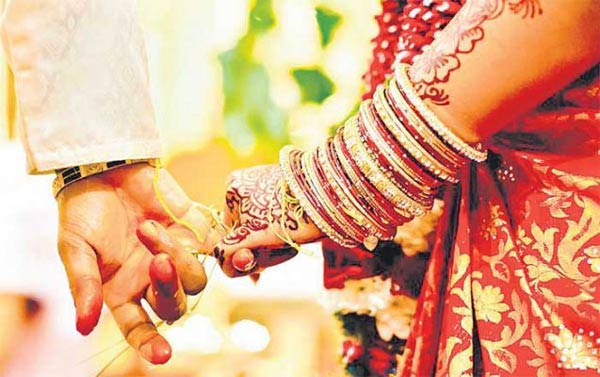The demand for court marriage in Pauri Garhwal is increasing day by day. It is considered to be one of the most auspicious events in the life of an arranged marriage. On hearing the word "court marriage", many youngsters aspire to get married in a court in Pauri Garhwal. They believe that it will be a very prestigious and a significant event in their lives. This is also because they do not want to embarrass themselves in front of their parents or in front of their friends by going to a court in Pauri Garhwal. When the bride and the groom decide to get married in a court in Pauri Garhwal, it is arranged in the presence of three witnesses. It is an honor for the couple to present their certificates and get the marriage registered in the court. The marriage is considered to be void without these three witnesses. Many youngsters are enticed and eager to marry in this manner but there are also some haters who try to stop the couples from proceeding. In such cases, the couple can approach the court and submit an application. If the court believes that there is nothing wrong in the case, then it takes no further action and allows the couple to proceed with the wedding as planned. There are certain rituals that must be observed in order to start the marriage. Firstly, the groom's family has to provide a cow to the bride's family. Then the marriage ceremony gets conducted with the priest leading the two families. A sumptuous meal is served to all the guests and relatives and finally the happy couple walks towards the bridal hall where the priest conducts the customary Indian wedding ceremony. The bride's family has to supply an embroidered saree to the groom. The bride is then welcomed by the groom's family and taken to the place where the couple is to get married. Once the marriage is over, the couple goes back home. There are some communities that celebrate the court marriage in a separate hall. However, this is not always the case and the courts generally allow for a shared marriage. There are a literally scores of ways in which a marriage ceremony can be performed, though usually the religion/caste of the bridegroom (and sometimes the bride), decides the kind of ceremony and the nature of rites. Sometimes, the bride and groom choose to have an Arya Samaj wedding. This kind of wedding is very different from the other types in many ways One of the basic rules of the Arya Samaj is that it conducts marriages only for Hindus, since the movement's founder Maharishi Dayanand Saraswati sincerely believed Hinduism to be the 'original' religion and that conversions accounted for the spread of other religions from Hinduism
Court Marriage is a common procedure, which has to be followed by everyone. If a marriage is not registered it is not considered valid during legal procedures such as, applying for a joint home loan. You could also be fined for not registering your marriage. It is a rule that all the marriages have to be registered whether you are having a wedding ceremony or not.
A marriage certificate is an important proof, in case there are some problems between you and your spouse in the future and a legal action needs to be taken.
Advantages of Court Marriage Certificate:-
• Certificate of Marriage is a document, which provides valuable evidence of marriage;
• Certificate of Marriage is a document providing social security, self-confidence particularly among married Women.
• Court Marriage Certificate is useful in getting the visa for the wife/husband.
• It will be helpful in claiming the Bank deposits or Life Insurance benefits when the depositee or the Insurer dies without a nomination or otherwise.
Documents required for the Performance & Registration of Court Marriage
1. Passport Size Photographs – four each of Marrying Persons.
2. Residential Proof (Voter Card / Passport / Ration Car / Driving License / Bank Passbook / Lease Deed / Rent Deed) of Marrying Persons.
3. Date of Birth Proof (Municipal Corporation Certificate, X th or XII th Examination Certificate, Passport, PAN Card) of Marrying Persons.
4. If any party is divorcee Certified copy of Decree of Divorce granted by the Court.
5. If any party is widow / widower Death Certificate of the dead spouse.
6. If any party is a Foreign Citizen or holding a foreign Passport or is having foreign residential address – Certificate of Present Marital Status of the party / No Impediment Certificate / NOC from concerned Embassy and Valid VISA.
7. Two Witnesses (Both should be major)



